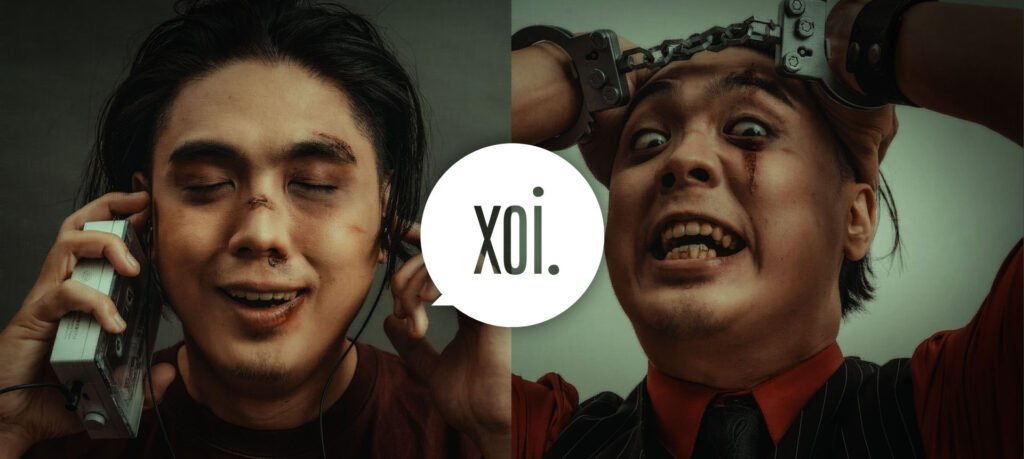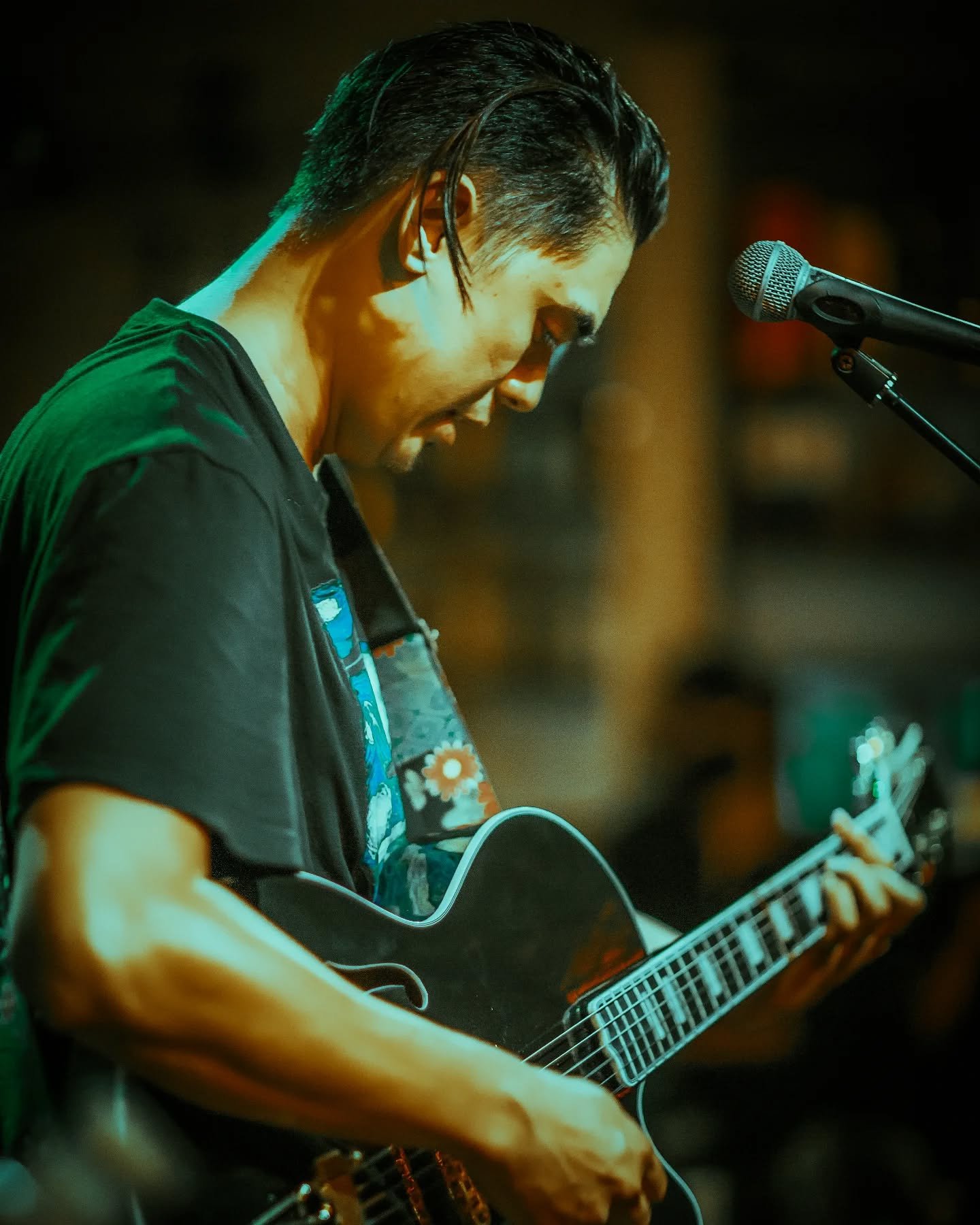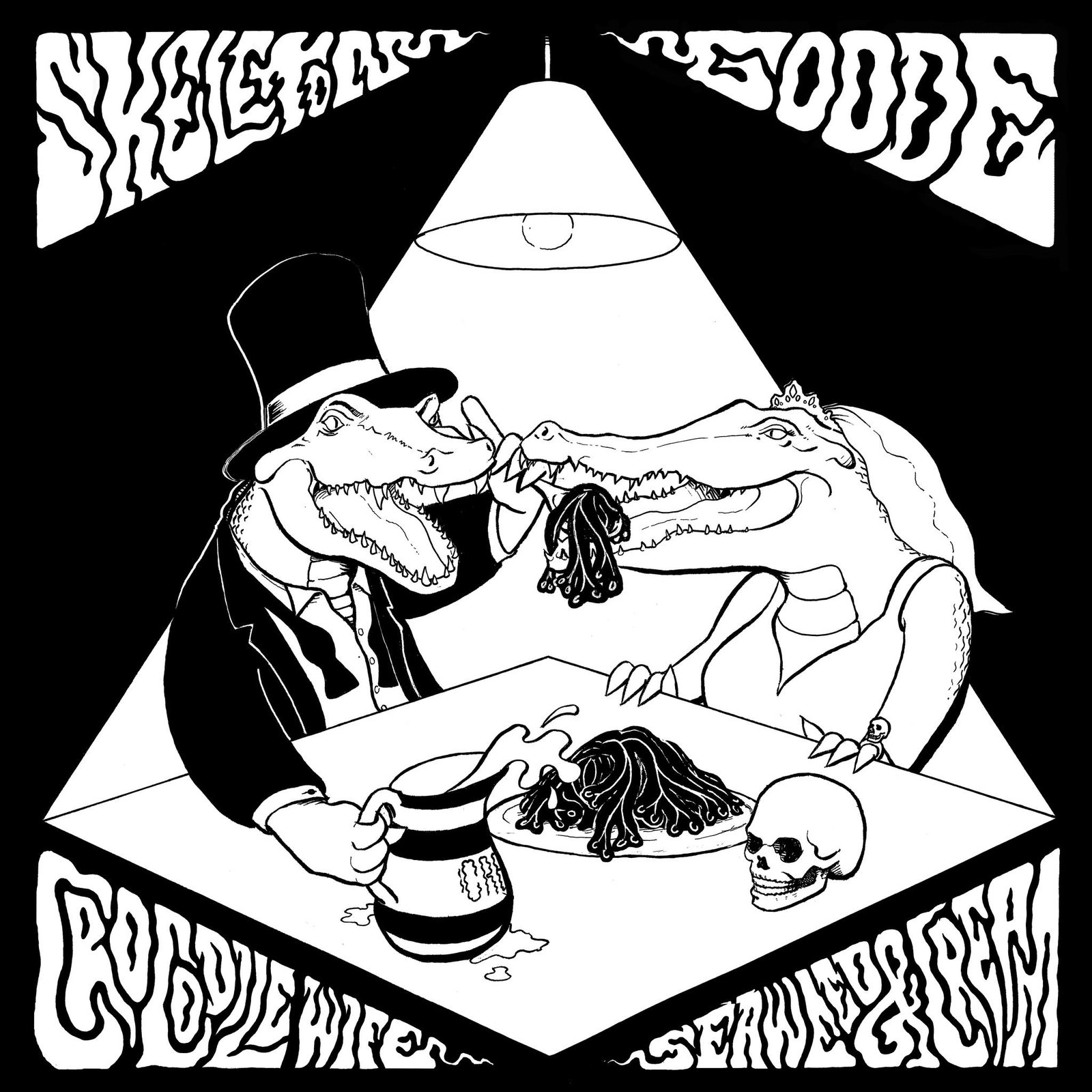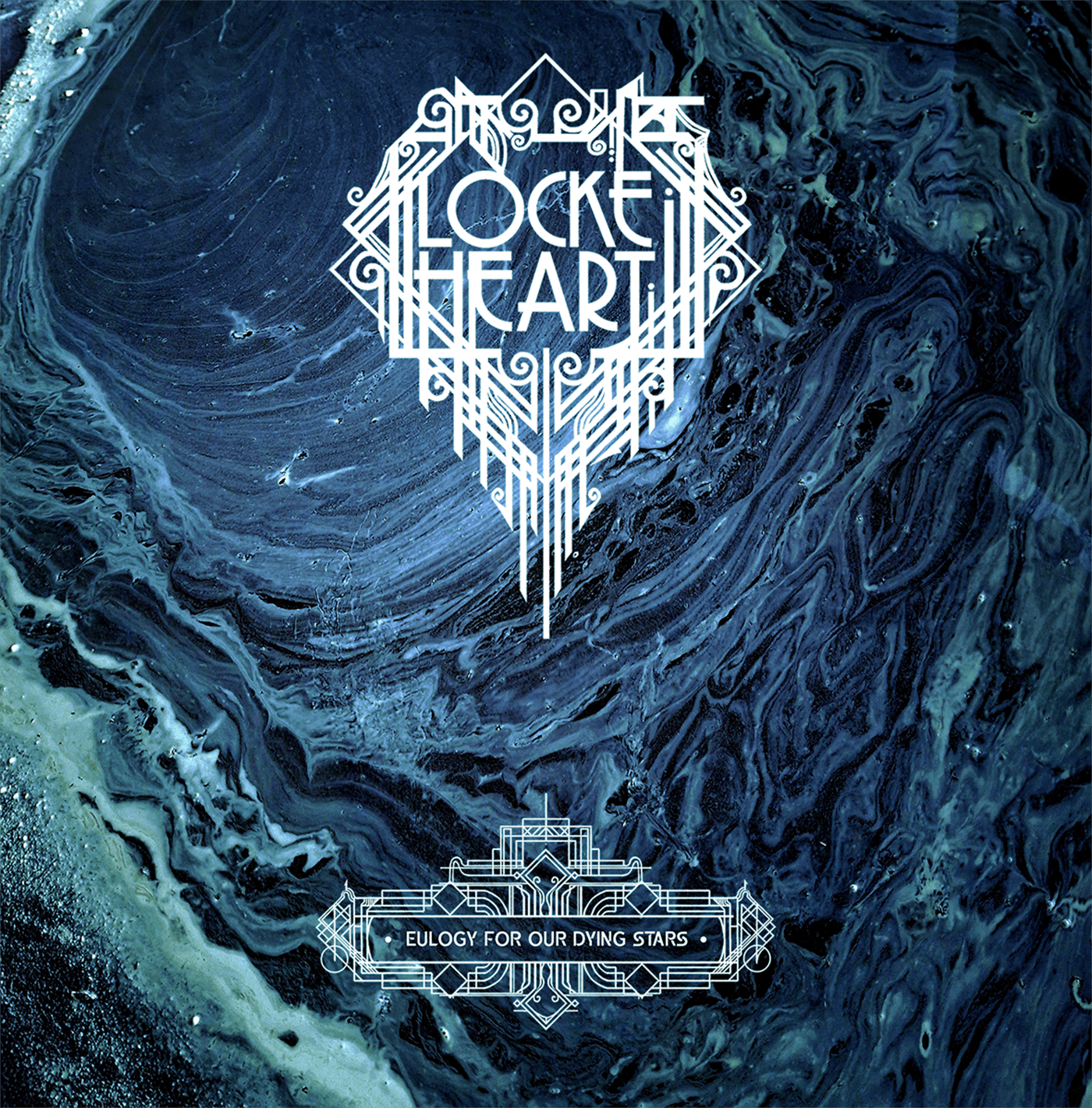From code to chords, from silence to soul-bearing soundscapes—XOI is more than just a band. It’s the emotional extension of Cường, a programmer by trade and musician by calling. Blending deep lyrical introspection with gritty production and a post-punk edge, XOI’s music is shaped by loss, love, and the eternal tug-of-war between artistic truth and everyday survival. In this candid conversation, we explore Cường’s journey through grief, fatherhood, self-taught artistry, and the many masks we wear to stay afloat. His story is one of quiet resilience, an honest testament to growth, creativity, and the long game of being seen.
Ethos:
Tell me something about yourself. Who are you?
XOI:
So I guess my name is a good start. I’m Cường. I’m working in software development and music media. Those are my main occupations and my strong suits. Yeah, I’m 34 years old.
E:
Can you tell me how you got into music? How did it come into your life?
X:
I think the most significant event is that I played in a band in my high school, even though my first introduction to music was when my brother, who is ten years older than I, played me some Dream Theater and Skid Row I think. But I just listened to it then, I didn’t play. Then, when I was in high school, my neighbor was forming a band and he figured out that we liked the same music, so he asked me to join his band. He asked me to play the bass because I could play some guitar. But, but when he asked, I was like, “How about drums?” He introduced me to the church he was attending, as they had music classes. I’m not religious, actually, but it was a good opportunity to learn. The church was teaching musical instruments and I used the chance to learn drums. We played for some time, but we just didn’t make it work.
E:
Could we go back to your brother’s influence for a second? You’ve mentioned he’s ten years older than you. Do you have any other siblings who affected you in this way?
X:
I have two older brothers and one older sister. I’m the youngest one, you know. But only that one brother that I mentioned is the one who influenced me the most. You see, he passed away.
E: Ohhh, sorry to hear that. Did your brother’s passing affect your music in any way, since he was such a great influence on you?
X:
Most definitely, yes! He was the first one who taught me guitar and he introduced me to rock music. When he passed away, I was only 20 years old, in my formative years, and it was hard to fully understand and cope with it. His death was, I think, one of the main drivers for my creative work. Also, this was the first time I felt what death is. I also learned hope. He was sick, but I really thought that he was going to get better. I really believed that he would get a second chance. It changed my perspective. And this also influenced my internal system, like my music and everything after that.

E:
So, your brother showed you some chords. You tried to learn drums at church. Your neighbor asked you to play bass. How did you decide which instrument to pick as your primary?
X:
Drums are the first instrument that I liked. To be honest, music came pretty hard for me, but I had a natural relationship with it. In middle school, there was this music teacher who would bring his keyboard to the class for the students to sing. He would play an intro so we could just jump into the next bar and start to sing. I honestly didn’t know how to do any of that. I really wanted to play drums. With my previous band, I played them. After that, I switched to vocals and found a vocal coach (Võ Anh Việt) who taught me. Not just how to use my voice, but also how to really play music. Before that, it was more of doing it for fun, but after that I started to see things very differently. I think that’s when I started to call myself a musician.
E:
When did you start working with this guy?
X:
I started studying with him in 2012. And I didn’t know anything about singing. He just asked me to sing something, and I did, so he told me that I have a good voice. I didn’t even know about that. I really appreciate his guidance because it helped me write the songs, too.
E:
If I understand correctly, you starting XOI aligns with your vocal classes. Right?
X:
Yeah, that’s all right.
E:
Did you start as a one-man project, or did you gather the band right away?
X:
At the start, I asked several people to join, but that didn’t really work out. All up until 2015. I didn’t find the lineup. From that point, for a couple of years, people would come and go. Even the current lineup was on and off up until recently.
E:
When it comes to the writing process, is it just you bringing the whole songs for the band to play, or is it more you giving them some kind of structure, and they add their parts themselves?
X:
I think it’s 95% my arrangement. After that, they add some details and changes. When we rehearse them.
E:
Where do you start your writing? Do you first start with in a form of some notes or does it start with music and then you add lyrics on top of it?
X:
It depends on the song, but mostly I write lyrics first. I think it’s not that hard for me because I can easily change it. For example, a couple of lines work from the get go, then I work on a chord progression over the next few lines, then I would change the worlds if something doesn’t match. I find that interesting.
E:
I know you play piano too. Do you write music with it or is the acoustic guitar your primary music writing tool?
X:
I mostly use the acoustic guitar when writing. I have 2 or 3 songs on the piano, but mostly it’s on acoustic. I understand some people find it easier because of the clear tones you get out of it. But I’m not that good of a piano player (hehe) so I prefer to stick to the things I know.
E:
Since you start with the lyrics, what is the main inspiration for you? Scenes from your own life or something you see on the street, or you just want to tell a story unrelated to any of it?
X:
Most of the time, I’m telling my personal stories and stories of people close to me. My brother is one of the inspirations, of course. One of his last words to me was to tell his story. So I do my best to do so. I also react to my family life and my other siblings. For example, my father never really liked what I’m doing. He was in the Army, and later he became a businessman. So, he didn’t think it was smart of me to put that much time and effort into music. He believes it doesn’t have a good future; it’s not going to put food on the table. And to some extent, I can understand him, but I couldn’t make him understand me. I’m not doing this for the money and fame, that’s not the reason and what I chase after.

E:
As I remember, you do have a song specifically dedicated to your father, right?
X:
Yeah, I have one, it’s his poem.
E:
So what did he say about that?
X:
He said he likes it. And that’s it.
E:
But you did listen to him, too. You’re a programmer, have your own business and are successful in what you do outside of music.
X:
That’s sort of correct. Programming is my work, livelihood. I work as a freelancer for some companies. But my actual “business” is XOI. I use it as a platform for all of my art-related projects, but at the moment it doesn’t really make any money (hehe). The plan is to turn it into something that can monetize and support my finances too. But I’m not in a rush.
E:
Do these two have any effect on one another? Does your job give you more motivation or work ethic in a musical sense?
X:
Definitely! I think there’s, the connections between them. When I’m programming, I try to make my code beautiful. Some people might think like “They don’t pay me enough for this,” but I’m just wired that way. I like to be as creative as possible. With the web apps I work on, I always try to add some animations, whatever will make it all look better for me.
E:
Do you do most of the designs for the band? Things like the artworks, social media posts, and photo sessions.
X:
That’s correct. For example, my last release, the double album, has a theme. It’s about different personas inside me. One is like a working-class man. He just wants to have a normal life. That’s it. That’s not easy. Not here or anywhere else in the world. To have a home, work hard, have a family, and provide for them. In order to do so, some have to sacrifice some other part of themselves. And that’s not easy either. That’s where the idea for the photo came about. One puts the gun to the head of another. Like killing oneself to fully become the person who makes things work. The other side is – I have a lot of beliefs in the good things, you know, but the reality is, they’re not that simple. You cannot be too nice. I still have a wishful thinking that being nice is a good thing, someone said that – I don’t want to live in a world where being nice is a weakness – and I still think that being nice is a good trait. But on the other hand, you have to realize that it’s not going to work. So, maybe, like, you have to get rid of that idea.
E:
You’re married. You have a son. How does your immediate family react to your music?
X:
My wife has always supported me. She adapts easily to go along with me and my direction. In the ned of the day she just she just wants to have a stable life. And I do my best to keep that balance. I believe she’s the only person who really understands me. And my son likes to listen to music. Currently, mostly kid songs, but he engages with some of my songs that the more upbeat. He likes to dance a bit to them. (hehe)
E:
Did your son change your approach to music in any way? As you said, kids are more attracted to upbeat music, something you can dance to.
X:
I don’t think so. Because, as I said before, I usually write the lyrics first.
E:
Let’s go back to the band a bit. Even though you’ve been playing on and off for ten years now, most of your releases were in the past three, four years. What’s the reason for that?
X:
Yes. Mostly because of the changes in the band. Also, my vocal coach didn’t want me to (hehe). He wanted me to fully develop my skills first. He wanted me to be perfect. At first, I wasn’t really happy about that, but honestly, I had to thank him for that “push”. I released an EP with five songs in 2018, but people didn’t seem to like it. This is a very Vietnamese thing because, if it’s not really good, people will be like, “What is this?” This was more related to the quality of the recording, to be fully honest. Maybe the idea is there, but if it doesn’t sound as expected, it’s not going to work. The guys in my previous band are not very good either (hehe), but they managed to get a good producer, build a solid fanbase, and they were one of the biggest bands in the country during their run. Also, they played softer music, which helps them attract a more churchy audience. I prefer to do my music myself fully.
E:
You mixed your albums yourself? How did you learn mixing?
X:
Actually, I learned a little bit with my previous band (hehe). The main guy also did the mixing for that band, so I learned some techniques. I did try to hire some producers to work with me, but it’s hard for me to communicate what I want. That’s why I started to take over. Also, back in the day, I was quite against all modern editing and tone correction. It took me some 4 or 5 years to accept that it’s an industry standard and to start utilizing it in my music too. Nowadays, it’s all available online, forums, YouTube videos, you just need the right mindset to learn, so it wasn’t hard to get what I needed.
E:
Does that mean you pitch correct your vocals, or you fix and learn to rerecord them?
X:
Before, I wasn’t trying to pitch correct and to push as much as possible from myself. But then I learned how to make it sound not artificial and now I welcome it in my recordings. Of course, I do my best, and I’m not using any of the effects live. I embraced minor imperfections and I do my best to hit all the notes the best I can.
E:
Who are your vocal influences? You have a pretty interesting way of singing. Kind of like post-punk or dark wave with deep, melancholic singing.
X:
I think the bigges, vocal influence for me was Till, Rammstein’s vocalist. I even used to copy this hairstyle (hehe). Others would be Tom from Blink 182, but I actually prefer his other band, Angels & Airwaves.
E:
You guys have your own recording studio?
X:
Yes, I have a home studio. That’s my main working space now. I go there every day, five days a week. It’s a small house with two floors, the ground floor is the studio, and upstairs I have a small office space.
E:
Which of your songs would you say best describes your artistic expression?
X:
I think that would be our first single. “Mơ”, it means a dream. I want to record it again sometime.
E:
If you’ve had the chance with famous artists, would you like to work with?
X:
Taylor Momsen from Pretty Reckless. I would like to have her voice on one or two of my songs. I would like to see how that would sound.
E:
You just released your double album – What’s the next thing for XOI? More art, collaborations, videos, something else?
X:
Currently, I’m working on promoting the album. To get more attention for the future. Also, I think I already have some songs for the next album. I haven’t written all the parts yet, but I think I’ll soon have the tracklist. I really want it to make it bigger than music. If I had enough capital, I would like to make a movie. Have a story to base it around, and then add my music to accompany it.
E:
If you could go back in time, would you change anything about your music career? What would you change?
X:
I wouldn’t want to change anything because, otherwise, this wouldn’t be me. Of course, I think I could have handled some of the situations better, but what we do is what defines us.
E:
The last one, what would you recommend to the young artists?
X:
I would just say, keep doing what you want, believe in it, but then in the same time, be realistic about what you’re doing. (hehe) You need a stable ground to keep going. That’s what works for me.
Cường, the heart and mind behind XOI, takes us on a personal journey that spans youthful discovery, family tragedy, and artistic rebirth. From his brother’s early influence to building a home studio where stories come alive, he opens up about the struggles of self-producing, learning to embrace imperfection, and finding balance between passion and practicality. Through it all, his music remains deeply rooted in emotional truth, often a mirror of his own evolution. With a new double album out and dreams of expanding into film, XOI is carving a path where introspection meets innovation, and every note carries the weight of lived experience.




